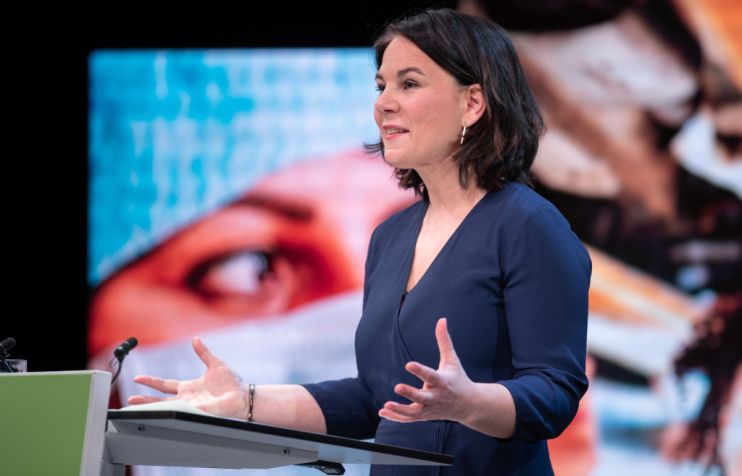The Green Party candidate to succeed Angela Merkel as Chancellor could control a fiercely left-wing German Government

For the first time in the history of the Federal Republic of Germany, the Green Party has nominated a candidate in the race to be Chancellor and succeed Angela Merkel.
This morning, the party announced 40-year-old Annalena Baerbock to stand in the September 27 election. After Merkel’s Christian Democrats, the Greens are polling in second place – the party is within a fighting chance.
Baerbock would be the youngest chancellor in the history of the Federal Republic – she would also be the most left-wing Chancellor Germany has ever seen. She has a background in politics and international law and has been co-leader of Germany’s Greens since 2018. Both Baerbock and her co-leader Robert Habeck have regularly come under fire for their poor grasp of complex issues in interviews. Their critics have branded them as high on opinions and low on facts. While Habeck has previously served as a state minister, Baerbock has no experience of government.
Despite the criticism, it is almost certain the Greens will gain a record number of votes in the upcoming race for Chancellor. In the last federal elections on September 24, 2017, the party scored just 8.9 per cent of the vote, making them the smallest of the six parties in the German parliament. According to the latest polls, the Greens are set to secure between 21 and 23 per cent of the vote this time around, just behind the CDU/CSU.
This would leave the Greens in pole position to exert a decisive influence on the policies of Germany’s next federal government and the only conceivable coalition will be one in which either the Greens either hold the chancellorship or take a very strong second place. A third partner, the liberal FDP, could even form part of this coalition between CDU/CSU and the Green party.
Another possible coalition is unsettling for many within the business community: Germany could be ruled by the Greens, alongside the SPD, a party which is following in the footsteps of former UK Labour leader Jeremy Corbyn in its sharp pivot to the left, and Die Linke, the latest incarnation of the former communist party that governed East Germany. The prospects of a tripartite left-wing government are causing many entrepreneurs to consider leaving Germany entirely.
The Greens are committed to moving beyond nation-states to establish a “Federal European Republic”. In pursuit of this final goal, they want “the EU to be given an instrument to create a permanent fiscal policy of its own, the use of which cannot be blocked by individual countries in the event of a crisis”. Essentially, this would mean disempowering national parliaments and enforcing minimum wages and high social standards all across Europe.
The Greens espouse an economic policy with an extremely strong role for the state and higher taxes on high earners and the wealthy. As a “last resort”, they have called for real estate companies to be nationalised. In the German capital of Berlin, the Greens are actively supporting an initiative to nationalise housing companies that own more than 3,000 rental apartments.
One of the major distinguishing features of the Greens is their detachment from business: 44 per cent of party members are civil servants or work in the public sector, and civil servants also represent the largest group among their voters.
In foreign policy, the Greens overwhelmingly moral approach is likely to lead to deteriorating relations with Russia and China in particular. Traditionally, the party has also been highly critical of the United States. Above all, conflicts with the U.S. are likely to arise because the Greens want to cut defence spending and explicitly reject NATO defence ministers’ commitment to spend 2 per cent of GDP on defence. In addition, according to the Greens’ Party Programme and Principles, their foreign and security policy will also be “feminist” – whatever that might mean.